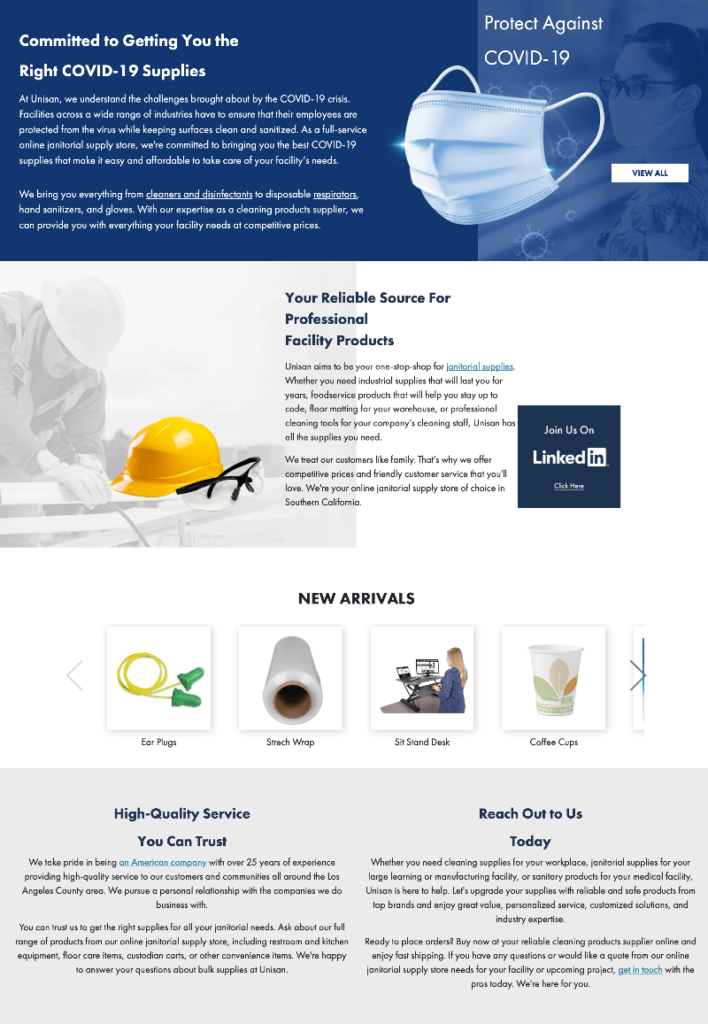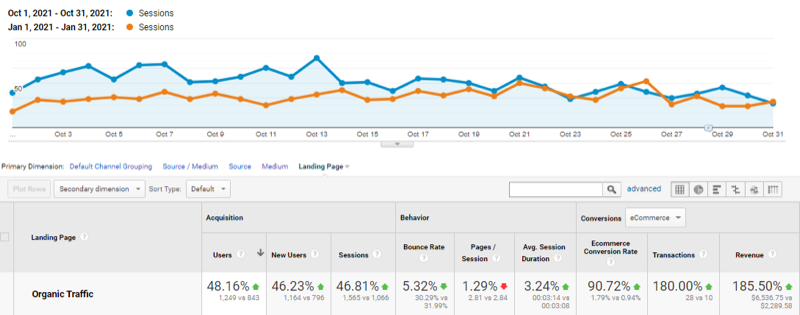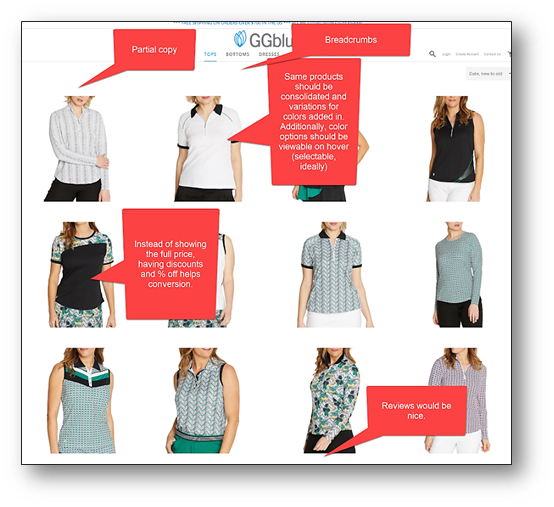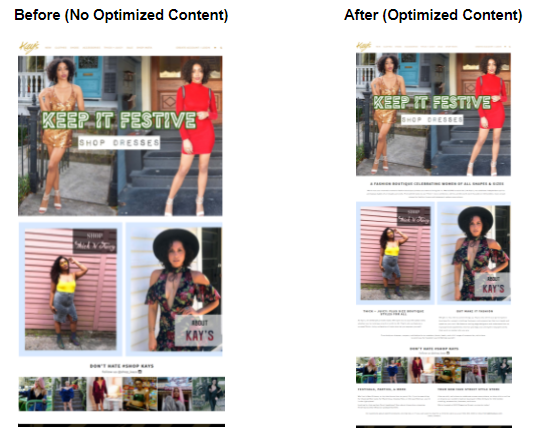Why Creating a B2B Content Marketing Strategy is Important
When it comes to B2B content marketing, companies are often at a disadvantage. There are fewer B2B influencers than their B2C counterparts, and they’re less likely to be on the radar of social media platforms. Since most B2B marketers are understaffed, it’s important to strategize about how to use content marketing to reach the right audience.
A good first step is to identify your target audience. This will help you figure out what content they want and need, and tailor your strategy accordingly. Once you’ve identified who your target audience is, you’ll be able to create content that will resonate with them. The teams that have the highest success rate with their B2B marketing spend almost 40% of their budget on content marketing.
Another great way to make sure your strategy is effective is by using LinkedIn advertising. You can use these ads as an inexpensive way of targeting your ideal customer on social media platforms like Facebook and Twitter. Ultimately, it’s worth investing some time upfront in order to create a successful strategy that will work for you for years–and save you time in the long run!
Your Business Standing In Terms Of Content Marketing
Your business needs to have a strong standing in content marketing because content marketing can help you increase your visibility on search engines like Google by providing fresh content that will keep the search engine interested in what your business has to offer.
Content marketing can also help you maintain customer relations and promote customer service by providing them with information that they need before they need it and answering any questions they might have before they even think to ask them. It also increases customer loyalty by providing them with information that only comes from you and not from other sources which means that you are their exclusive provider for whatever services or products they may need from you. This could be anything from how-to videos on using your product or service to tutorials on how to get the most out of your products or services so that customers get more than what they pay for when they purchase them from you.
Why is a Content Marketing Strategy Important?
A content marketing strategy is important because it determines how a company develops and delivers its content. It also dictates the type of content that will be created and delivered, as well as how it will be distributed. The best content marketing strategy is one that is built with a long-term goal in mind. Through this strategy, a company can establish a strong base of customers who are loyal to their brand.
How to Create the Best Content?

It is a common misconception that there is a set formula for creating the best content. In reality, there are many factors to consider when deciding on what will produce the best content. For one, it is important to know your audience and their needs. If you know what they need from you, then you can provide those needs in a more satisfying way. This will create a more loyal following and will make it easier for you to create your content because you know what they want from you.
Email newsletters are one of the best ways to reach out to your customers with useful information. They are also a great way to keep in touch with them. Almost 75% of B2B agencies use email newsletters as part of their content marketing strategy. There are many different reasons for using email newsletters, but they can be broken down into four categories:
- to promote offers and events
- to provide customer service updates
- to build relationships through offers and events
- to provide customer service updates
Audit Your Content
Auditing your content is important so you can be sure that everything on your site is accurate, up-to-date, and free of any misinformation. It is also important to audit your content so you can be sure that all of the links on your site are working correctly. This will help you keep your site in great shape and ready for visitors.
Plan Your Content
Creating a content strategy is important for any company that wants to align the content they publish with their business goals. This strategy includes a plan to publish content on a regular basis, as well as a plan for promoting the published content. A content strategy also helps a company create a consistent message with its customers and prospects.
Execute the Plan
Executing a plan involves creating and implementing a strategy that includes the best social media platforms, blogging, and other tactics to get customers to visit your website. You may need to research and try new things in order to see what works best for your company. Once you have a strategy in place, it’s important to execute it well.
Enhance Your Content
The importance of enhancing your content is that it will help you improve your ranking on Google. As the content is enhanced, the ranking will increase and more people will know about your business.
Evaluate the Success


Every content marketing strategy should include a process for evaluating success. Evaluating the success is an important step in the content marketing strategy because it provides insights for future iterations and helps to improve the effectiveness of the strategy. Evaluating the success can be accomplished by looking at several metrics:
- Social media likes and shares
- Unique visitors and page views
- Email open rates and click-through rates
- Sales conversions and e-commerce transactions
The most important metric will depend on what you’re trying to accomplish. For example, if you’re looking to generate sales, then sales conversions or ecommerce transactions would be your most important metric. If you want to increase brand awareness, then unique visitors and page views would be the metric you should track.
Steps to Create a B2B Content Marketing Strategy

Content marketing is a powerful way to engage with your target audience and provide value. 86% of B2B content marketers cited creating brand awareness as one of their content marketing goals. Here are a few steps to create a successful B2B content marketing strategy.
Step 1: Target the Right Audience
B2B content marketing is a broad and inclusive term that refers to content marketing for business-to-business (B2B) companies, who use content to sell products and services to other businesses. It is different from B2C content marketing because the target audience is different.
The main goal of B2B content marketing is to generate leads for the company, so it’s important to know who the target audience is before creating a strategy. The following are some questions that can help in defining a target audience:
What industry do your target prospects work in? What role does your company play in their industry? What problems does your company solve for them? What are their pain points?
Once you’ve answered these questions, you’ll have a better idea of who your target audience is and will be able to create content to speak directly to them.
Step 2: Fix Your Marketing Goals
Marketing goals can be changed with a few simple tweaks.
Every company’s marketing department has a different set of goals. For some, the goal may be to increase awareness for their product or service. For others, the goal may be to increase brand loyalty and advocacy through content marketing.
Regardless of your goal, there are specific strategies that can help you achieve it. Whether you’re looking for new ways to engage with your audience or new ways to produce content, here are some helpful tips from content marketing experts:
Develop a plan for allocating your time and effort: One way to improve your content marketing strategy is by taking a step back and figuring out how you want to allocate your time effectively across all of your efforts. This way, you’ll have the best chance at achieving your goals with the limited resources available.
Find out what works best for your company: It is important to figure out what works best for each company before moving forward with any changes in content marketing strategy. Some companies might do better with shorter pieces of content that are more visual in nature while others may do better with long pieces of text that provide more information. Figuring this out ahead of time will help you avoid wasting time on something that won’t work for you.
Create a plan: It’s important not only to create a B2B content marketing plan but also to stick to it once it’s created. This means setting aside time each day or week or month to make sure everything is going according to schedule and sticking with the plan as closely as possible so that nothing falls through the cracks and nothing gets left behind. A plan will help you stay on track and cut down on wasted time spent trying things that didn’t work before giving up on them altogether because they weren’t successful in the first place.
Step 3: Understand the Journey of the Buyer
The journey of the buyer has changed drastically in the last 10 years. No longer are buyers looking for a product or service they think will solve their problem. They want to be educated on how your product or service solves their pain point.
The best way to create content that will educate your buyer is to understand their journey and what they are trying to accomplish.
Step 4: Choose Amazing Content Ideas
The content that you create for your B2B content marketing strategy is the foundation of your business. It is the most important connection to potential customers. With a wealth of information available online, it can be difficult to know where to start when it comes to creating a professional content marketing strategy.
Step 5: Organize Your Strategy & Execute Well
A B2B content marketing strategy is a way for a business to communicate with its market and build trust. It can be tricky to do as it takes time and effort, but the payoff may be worth it as this type of marketing can be very effective.
To start, you’ll want to figure out who your target audience is and what they’re looking for. From there, you’ll want to define your messaging and create an editorial calendar that includes topics and frequency. This will help you stay on top of things and not miss any important dates or opportunities.
Once you’ve got your plan in place, it’s time to execute. This means coming up with ideas on topics you want to blog about that align with your overall messaging, then creating posts around those topics that offer value to your target audience. You’ll also want to consider social media posts, email newsletters, videos, infographics, and podcasts to reach your audience outside of blogging.
Step 6: Measure Your Success and Setbacks
There are so many different components that can be measured. One of the most important things to measure is ROI. Is the content you are creating producing the desired return on investment? If not, perhaps it’s time to reevaluate the strategy.
Another good way to measure success with your B2B content marketing strategy is to use analytics. Analytics can give you a lot of information about what your visitors are doing on your site, and how they’re engaging with your content. You can use this information to figure out how people are responding to different types of content and what type of content they need more of.
You should also track conversions. When someone clicks on a link from one of your blog posts or videos and signs up for a demo, subscribes to an email list, or downloads a white paper, those are all considered conversions and it’s important to know if those conversions are happening as often as they should be.
Step 7: Project Your Unique Value Proposition
One of the most effective ways to create content is to project your brand’s unique value proposition. In order to do this, it’s important to know what makes your company different from the competition. This includes understanding what sets your company apart from competitors in terms of offerings, target markets, and industry trends.
Once you have a strong understanding of what makes your company different, it will be easier for you to create content that will resonate with your audience. What is going to make them want to engage with you and ultimately buy from you? Knowing this will allow you to appeal directly to their interests and concerns. For example, if they are concerned about social responsibility or sustainability then highlighting those values in your content will help differentiate you from competitors who may not share those values as strongly as you do.
Taking Care of SEO Strategy Basics
It’s important to make sure that your website is really SEO-friendly before you even start trying to rank for keywords. If you don’t take the time to get the basics right, you’ll be working uphill from the start.
Keyword Research
By using the right keywords, you will be able to generate more traffic for your website. If you are not sure what keywords to use, you can do some research on Google Adwords or Bing Ad Intelligence. You can also use tools like Moz Keyword Explorer or Google’s Keyword Tool.
Google Trust
Google’s trust is essential for SEO. When it comes to Google, there are two different standards to judge whether or not a site is trustworthy. There are also other trust factors that Google uses to judge whether or not a site should be trusted, but these are not manually verified by Google. Sites with these types of trust factors will be evaluated by Google’s algorithm to see if they possess any characteristics that might make them less trustworthy.
B2B Digital Marketing Strategies
For business-to-business (B2B) marketing, you should focus on your target audience and the unique value that your company provides to them. Your content should be free of corporate jargon and aimed at the reader’s needs. It’s also important to be consistent with your messaging.
Analyze the Marketing Funnel
The marketing funnel is a concept that divides the customer’s decision-making process into five stages: Awareness, Interest, Evaluation, Purchase, and Loyalty.
The awareness stage is when the customer is first introduced to the product or service and has no knowledge of it. The interest stage is when the customer begins to learn about the product or service and may be considering it. The evaluation stage is where the customer determines if they’re interested in purchasing it and will do research before deciding. The purchase stage is when the customer decides to buy and take ownership of the product or service. The loyalty stage is when the customer decides to continue using the product after purchase and considers themselves to be a member of your brand community.
Market segmentation, which involves dividing up customers based on shared characteristics such as age, gender, location, and industry sector can help marketers reach their target audience more effectively by tailoring their messaging to meet these needs.
Website Optimization

Website Optimization is important when developing B2B Digital Marketing Strategies. This is because the website is the main marketing tool for this type of company. The optimization of a B2B website can lead to increased leads, improved rankings, and higher conversion rates.
Implement SEO Initiatives
SEO can be done through various means, including keyword research, link building, social media marketing, and more. When developing B2B digital marketing strategies, it’s important to remember to include SEO initiatives in order to build your presence on the internet.
Create High-Quality Content
The most common mistake B2B marketers make when developing digital marketing strategies is not creating high-quality content. This can be a costly mistake. Marketers should consider what will happen if they don’t create high-quality content for their product or service.
The worst-case scenario is that there won’t be any traffic to their website. If there’s no traffic, there will be no conversions (sales) and no return on investment (ROI).
The best way to create high-quality content is to conduct extensive research. If you want to write about blogging tips for B2B marketers, for example, research blogs and articles on the subject and read as many as you can before writing anything new (and don’t plagiarize).
Don’t Ignore Social Media
Social media is an important part of any company’s marketing strategy because it can be used to generate leads for your business. You can post content that helps build brand awareness or can be used as advertisements for your products or services. Here are some tips on how to use social media for lead generation:
- Create engaging content that is relevant to your niche market; this may include infographics, videos, or blog posts about your industry.
- Interact with other people on social media sites by participating in conversations or responding to comments on your posts; this will help you establish relationships with potential customers who may need your services in the future.
- Link back to your website; make sure you include a “follow me” button on all of your profiles so people can easily access more information about you and the products or services you offer.
Implement Email Marketing Strategies

When creating an email campaign, it’s important that you know who you’re targeting and what they want. You will also need to determine when your audience wants the message sent out and why they would want to take any action as a result of receiving it. If you know these three things ahead of time then you can develop a successful campaign by tailoring your message appropriately for the recipients’ needs. This will make sure that everyone feels like they are being communicated with on their level and are getting what they want out of the campaign.
Understanding Your B2B Goals
Understanding your B2B goals is important because it will help you to better market your products or services to the right people. When you understand your customer’s needs and goals, that knowledge can help guide your marketing strategy and lead you to more relevant prospects who might be more willing to buy from you.

